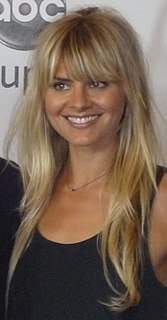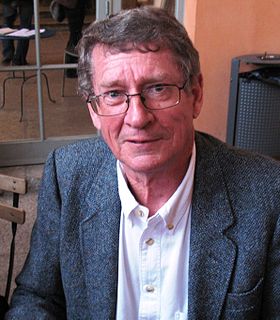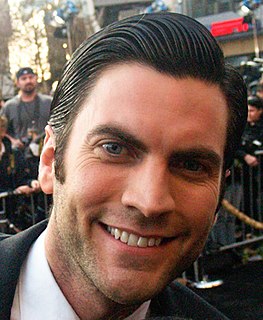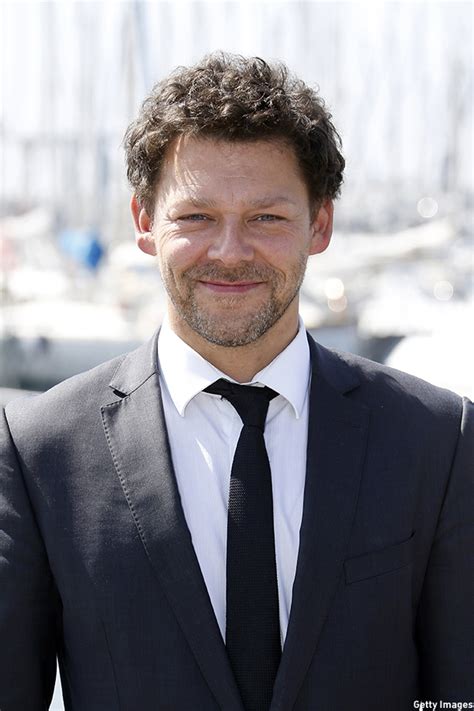A Quote by Matt de la Pena
When I'm following what a character does in a book I don't have to think about my own life. Where I am. Why I'm here. My moms and my brother and my old man. I can just think about the character's life and try and figure out what's gonna happen. Plus when you're in a group home you pretty much can't go anywhere, right? But when you read books you almost feel like you're out there in the world. Like you're going on this adventure right with the main character. At least, that's the way I do it. It's actually not that bad. Even if it is mad nerdy.
Quote Topics
About
Actually
Adventure
Almost
Am
Anywhere
Bad
Book
Books
Brother
Character
Does
Even
Feel
Figure
Following
Go
Going
Gonna
Group
Happen
Here I Am
Home
Just
Least
Life
Like
Like You
Mad
Main
Main Character
Man
Moms
Much
My Brother
My Own
My Own Life
Nerdy
Old
Old Man
Out
Own
Plus
Pretty
Read
Right
Think
Try
Way
Why
World
Related Quotes
If you think of even Tolstoy or a book like 'Anna Karenina,' you go from character to character, and each section is from the third person perspective of a different character, so you get to see the whole world a little more kaleidoscopically that way. That's traditional narrative manner, and I haven't done a book like that before, but I enjoyed it.
The main thing about the character [in the Ordinary World] is that he loves music, and he shares it with his daughter. He's having a mid-life moment, and it's a small moment, really. I think that the character actually really loves where he's at, in his life. He's just trying to have it make a little bit more sense while he figures out what he actually wants to do with it.
When I'm writing, I try to have the mask of my character on as I'm walking through the world. When I'm not at my desk, the rest of the time, I try to stay in that character and see the world the way that character would It's almost like method acting in a way — keeping the character close the way the actor keeps a script close and always tries to be in character.
I think it's my job to like any character I play - to understand and appreciate a character, to look at the world as much as possible from their point of view. I don't look at it just technically: learn the lines, figure out what gestures I want to bring and play, and that's it. I like to learn as much as I can about the person, and see what happens.
A character does seem to have a life of its own, but I have what I'd describe as a very fluid relationship with them - as I'm thinking of what they will be like, they shift in and out of focus - they are a projection of some idea inside of me, even if a character is inspired by an actual person, I'm well aware that it is not that person. My job is to identify the essence of the character, and to bring them to life long enough to commit the acts, say the words or simply "be" in a way that allows them to affect and be affected by other elements and events in the imaginary world of a story.
At the time, I used to say, "We should market this like Everybody Loves Raymond. It's just a guy dealing with his family." Instead, it was irresistible to show all these funny people. So, I actually think this could be more inviting to a new audience because they can just watch one character, find out what's going on in his life, and then meet another character and find out what's going on in her life, and then see how it intersects the other one.
Yorgos Lanthimos said, "What about if he's a bit soft?" And I said, "Yeah, I think you're right." He just comfort-eats a little bit too much. He's just asleep in his own life and has let himself go. And the mustache, I don't know if it was him or I suggested it. But I remember my sister was watching me eat and she was like, "God, does he have to be fat?" And in retrospect I couldn't think of David being any other way because it affected the way I moved. It really did. It slowed me down in a way that I felt was conducive to kind of tapping into the spirit of the character.
It's the way I feel about acting. That we are given clues by a writer about someone's essence or persona and it's our job to try to figure out which of those clues are true, which of clues we decide to follow and which of those clues we think are red herrings, or only in the way another character thinks of that character.
I never like to judge the character. I just have to leave my feelings of pity, or fear, about a character - whatever I feel towards the character, I try to leave to one side. It's good to have them, but it doesn't help me. I can't act those things. I just to play the character as truthfully as I can.
When you go for something because you're curious about it, you get psyched up about the chance of getting into it. It's like an actor meets a role, and you slip into that body and see what happens, to experience certain conditions, to adopt a certain character. Even shooting is a study of the character. I think both the character and the actor, and eventually the filmmaker - myself - are finding a way to accept their environment and being accepted and feel comfortable of themselves.
Even in my comedies, I don't take anger as a joke. I think anger and laughter are very close to each other, when you think about it. One of the things I like about a character: I always think it's fascinating when a character can turn on a dime and go from one emotion to another. I like watching that.





































